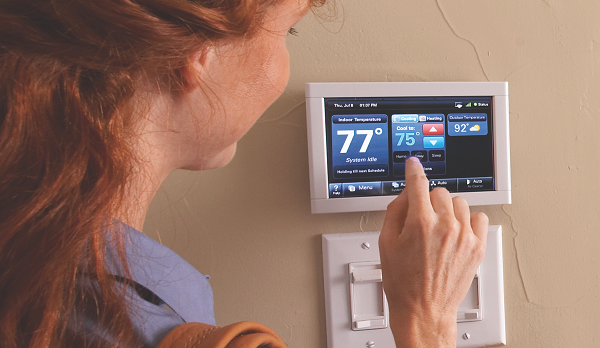Copeland Smart Home Survey: Rising Concerns About Data Privacy
Jan 23, 2025Explore the key findings of the Copeland Smart Home Survey, revealing homeowner attitudes towards data privacy, knowledge of data collection methods, and implications for manufacturers.
Rising Concerns: Unveiling the Findings of the Copeland Smart Home Survey
The increasing adoption of smart home technology brings unparalleled convenience and control, but it also raises significant questions about data privacy. The recent Copeland smart home survey sheds light on these growing concerns, revealing a critical gap between consumer adoption and understanding of data handling practices. This article delves into the key findings of the survey, exploring homeowner attitudes towards data privacy, their knowledge of data collection methods, and the implications for manufacturers in the smart home industry.
Increased Ownership, Increased Concerns
The Copeland smart home survey highlights a significant rise in the ownership of smart home devices, including smart thermostats, TVs, and appliances, since 2022. However, this surge in adoption is accompanied by a parallel increase in concerns regarding data privacy. Homeowners are becoming increasingly aware of the potential risks associated with sharing their personal data through these devices.
The Knowledge Gap: Understanding Data Collection
A key finding of the Copeland smart home survey is the lack of understanding among homeowners about how their data is collected and used.
- More than half (52%) of homeowners admitted they have no idea how data is collected from their smart thermostats. This lack of awareness raises serious questions about informed consent and consumer control over their personal information.
- Homeowners who do not own smart thermostats are less confident that manufacturers use customer data responsibly (58%) compared to those who own a smart thermostat (73%). This suggests a potential barrier to purchase rooted in data privacy anxieties.
- Alarmingly, only 14% of smart thermostat owners reported researching a manufacturer's data privacy policy before making a purchase, indicating a widespread lack of due diligence when it comes to protecting their data.
The Transparency Imperative: A Call for Action
The Copeland smart home survey serves as a resounding call for transparency among smart tech manufacturers. Lisa Plaggemier, Executive Director of the National Cybersecurity Alliance, emphasizes that the lack of understanding about data collection, especially with the rise of AI, is a major concern. Manufacturers must prioritize clear and accessible privacy policies to educate consumers about how their data is being used.
Consumer Willingness to Prioritize Privacy
Despite the current lack of understanding, the survey reveals a strong willingness among homeowners to prioritize privacy. Seven out of ten homeowners are willing to replace their current thermostat with one that offers more robust privacy features. Millennials are even more inclined to switch (80%), demonstrating a heightened awareness and demand for data protection among younger generations.
Copeland's Commitment to Data Privacy
As a leading innovator in the HVAC industry and the company behind the Sensi thermostat platform, Copeland has taken proactive steps to address data privacy concerns. The company created a formal privacy pledge in 2022, committing to:
- Never using smart thermostat activity for targeting or advertising purposes.
- Never selling user's personal data to anyone.
- Not making changes to thermostat settings based on usage assumptions without user consent.
 Credit: mechanical-hub.com
Credit: mechanical-hub.com
Brendan O'Toole, vice president, smart home and energy management for Copeland, stresses the importance of empowering homeowners with control over their data. He believes that while data can optimize home comfort and energy savings, the settings should remain exclusively under the homeowner's control. He urges manufacturers to adequately disclose their privacy policies and educate consumers about the importance of data security.
Methodology of the Copeland Smart Home Survey
The market research study was based on a questionnaire designed by FleishmanHillard and executed by the Copeland Marketing Research & Insights team. The study was facilitated through Dynata’s panel of respondents, requesting participation from 2,000 U.S. homeowners between 18 and 76 years old and representative of the U.S. homeowner population. Statistically significant differences are reported at the 95% confidence level.
Conclusion: A Future of Privacy-Conscious Smart Homes
The Copeland smart home survey underscores the growing importance of data privacy in the smart home market. As consumers become more aware of the potential risks, manufacturers must prioritize transparency, education, and robust privacy protections. By addressing these concerns, the smart home industry can build consumer trust and pave the way for a future where convenience and privacy coexist.
Common Smart Home Mistakes and How to Fix Them
Published Feb 19, 2025
Avoid common smart home pitfalls by understanding and fixing these mistakes. Learn how to optimize your smart home for convenience, security, and efficiency....
Ensuring Smart Plug Safety for Winter Devices: A Comprehensive Guide
Published Feb 18, 2025
Ensure smart plug safety for winter devices with our comprehensive guide. Learn how to prevent accidents, save energy, and enjoy a secure home throughout the season....
Supercharge Your Smart Home: 5 Must-Try Google Gemini Tips and Tricks
Published Feb 18, 2025
Unlock the full potential of your smart home with Google Gemini! Discover 5 must-try tips and tricks for effortless control, natural language commands, and AI-powered automation....